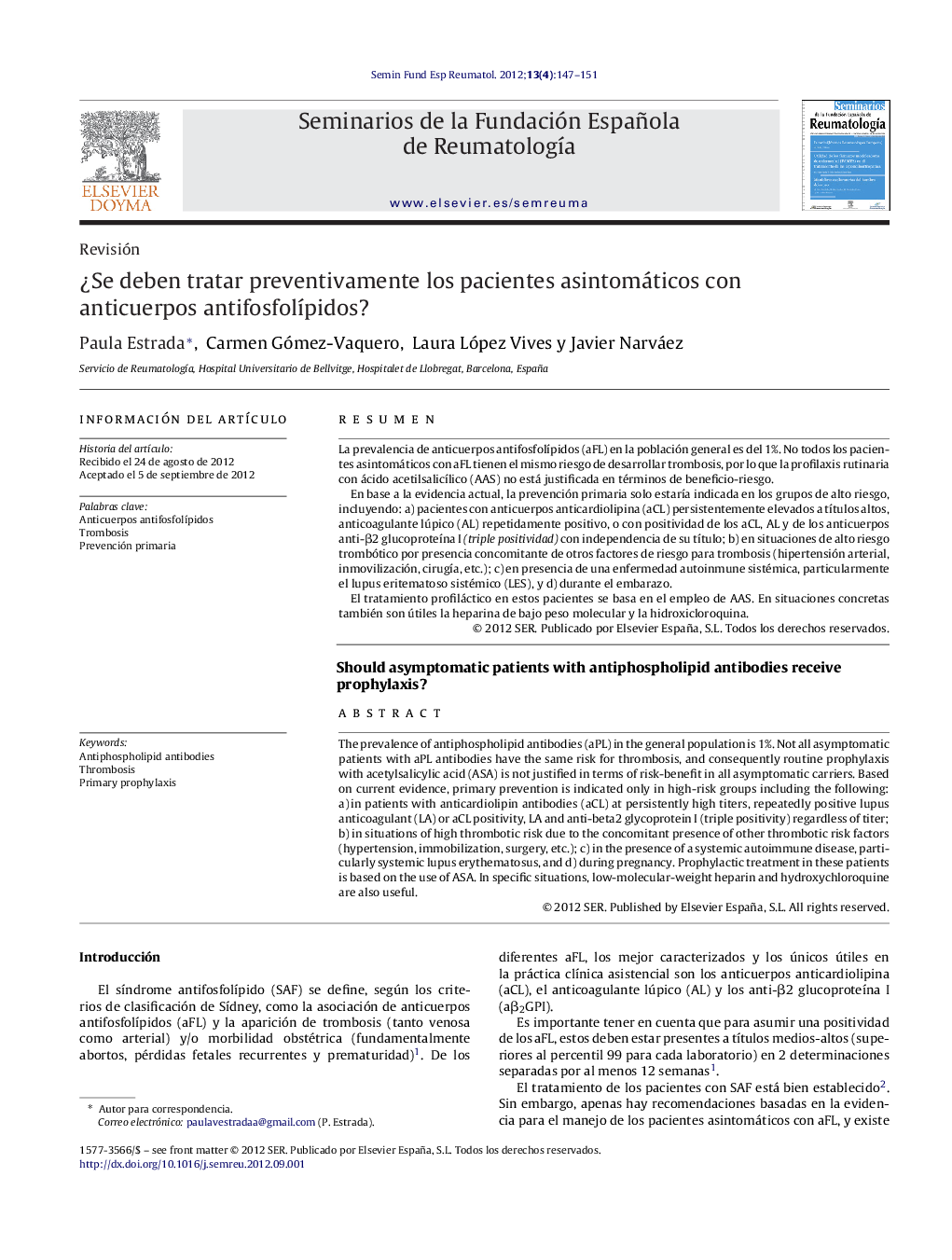| Article ID | Journal | Published Year | Pages | File Type |
|---|---|---|---|---|
| 3391070 | Seminarios de la Fundación Española de Reumatología | 2012 | 5 Pages |
Abstract
The prevalence of antiphospholipid antibodies (aPL) in the general population is 1%. Not all asymptomatic patients with aPL antibodies have the same risk for thrombosis, and consequently routine prophylaxis with acetylsalicylic acid (ASA) is not justified in terms of risk-benefit in all asymptomatic carriers. Based on current evidence, primary prevention is indicated only in high-risk groups including the following: a)Â in patients with anticardiolipin antibodies (aCL) at persistently high titers, repeatedly positive lupus anticoagulant (LA) or aCL positivity, LA and anti-beta2 glycoprotein I (triple positivity) regardless of titer; b)Â in situations of high thrombotic risk due to the concomitant presence of other thrombotic risk factors (hypertension, immobilization, surgery, etc.); c) in the presence of a systemic autoimmune disease, particularly systemic lupus erythematosus, and d) during pregnancy. Prophylactic treatment in these patients is based on the use of ASA. In specific situations, low-molecular-weight heparin and hydroxychloroquine are also useful.
Keywords
Related Topics
Health Sciences
Medicine and Dentistry
Immunology, Allergology and Rheumatology
Authors
Paula Estrada, Carmen Gómez-Vaquero, Laura López Vives, Javier Narváez,
